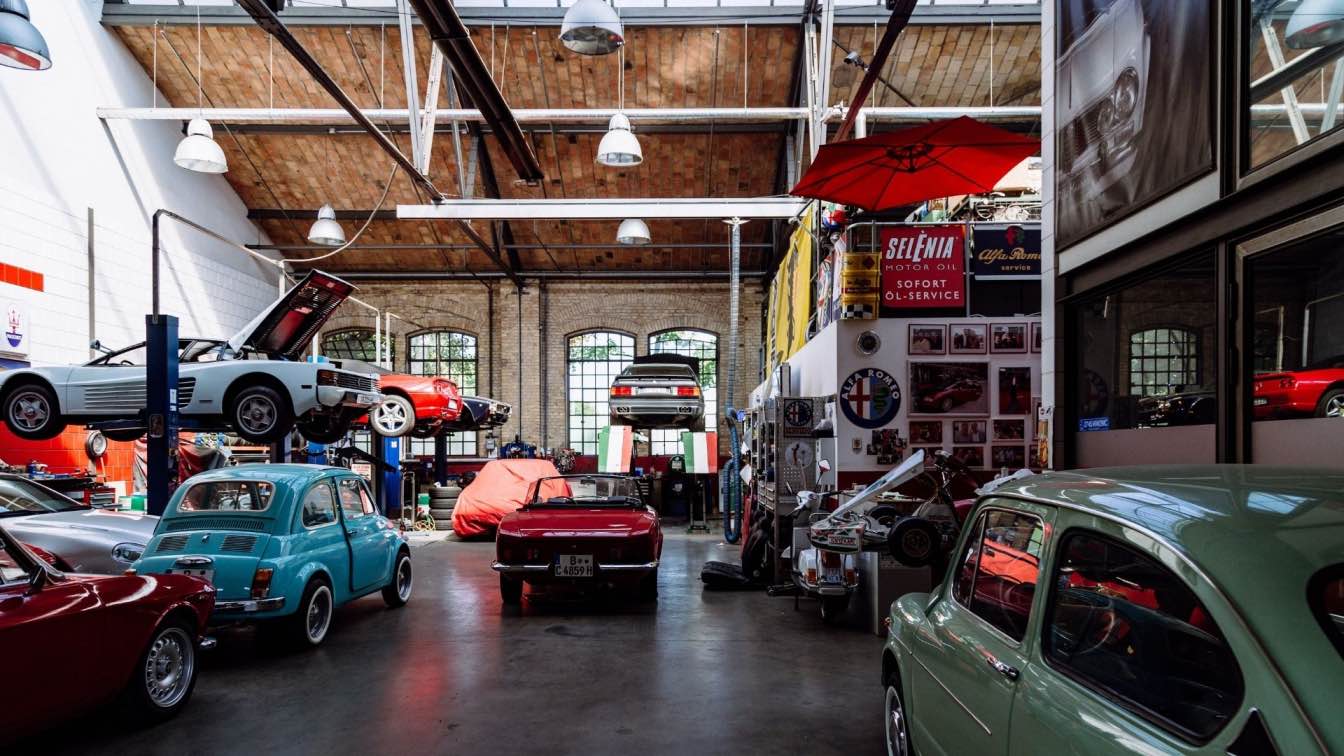Many homeowners forget they have a garage because they do not use it as intended. They think the structure does not require frequent cleaning and maintenance. However, people often subject garage floors to chemical spills and various pressure from vehicles and people movement. There is also pressure from the things that homeowners store in their garage. The pressure on the floor could cause stains and cracks in the flooring. These things could make the garage a dismal look. You could give the garage floor a good cleaning and use garage floor finishing to restore its previous clean and pleasant appeal.
But keep in mind that you must still consider durability, resilience, ease of floor preparation, and ease of application of the protective coating or cover. Here are some coverings and coatings to consider.
1. Concrete floor paint
If you consider this option, remember to buy floor paint, as this is different from the paint you used on concrete walls. But ensure that the garage floor is thoroughly clean and dry and that you have patched up cracks and chipped surfaces with the recommended sealant. Latex-based floor paint is easier to apply with a brush or roller. A more durable coating is oil-based floor paint. It lasts longer but takes time to apply. However, its adhesion on the concrete floor is better.
2. Polyurethane protective coating
Polyurethane protective coating, like that of Durabak, is versatile, and you can use it on different surfaces. It is effective as a garage floor coating because it provides a slip-resistant surface. It adheres firmly to concrete and will last for many years. Further, it requires minimal maintenance.
When choosing garage floor coatings, seeking expert advice can help you make smarter decisions that align with your specific needs and preferences. They can guide you to explore the various materials available, including epoxy, explaining their unique properties, durability, chemical resistance, and ease of maintenance.
3. Epoxy paint
You can also choose epoxy paint, which is slightly cheaper than polyurethane coating. It is also resilient and will strengthen your garage floor to resist pressure. In addition, the paint is hot tire-resistant and stain-resistant. However, you need a professional to apply epoxy paint. The recommended drying time is between six to seven days, but you will have a sturdy garage floor that will last for about five years when it hardens. It is your choice if you want to apply two coats of epoxy paint.
4. Rollout mats and interlocking floor tiles
If your garage floor is not heavily damaged and you do not have time to paint or coat it, an easier option is to use rollout mats. The mats come in different colours, designs, widths, and lengths so that you can cover the entire garage floor or specific areas only. But remember, mats are prone to stains and require frequent cleaning. Conversely, you can use rigid interlocking floor tiles, which are affordable, low maintenance, and come in different colours and designs.
It is important to consider how you use your garage and how much you plan to invest in floor protection when it comes to garage floor covering. But overall, ensure that you clean your garage floor and fix minor damages to prevent them from getting bigger. In addition, minimise abrasion and spillage to improve the life of your garage floor protector.
Getting your garage floor coated properly involves a few key steps. First off, experts will take a look at how your garage floor is doing right now and tell you what needs to be done. This could include cleaning things up, fixing any cracks, and giving the surface a good etching. These steps make sure that the coating sticks well and lasts a long time.
The pros know all about the right techniques, like how to mix things up, what temperature works best, and which tools to use. Following their advice ensures that the coating goes on smoothly, without any weird spots or wearing out too soon.
Different coatings need different care, and the experts can fill you in on how long your chosen material needs to cure and the best conditions for that. Doing this step right is key to getting the coating as hard and resilient as you want it to be. They'll also let you know about the costs upfront, what you might need to spend on maintenance later, and if there are any savings with each coating option.





